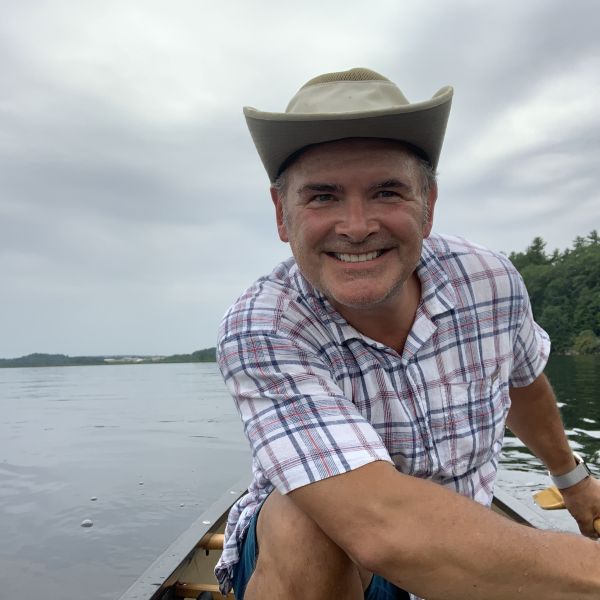Image

-
Matt Kirchman
President/ Creative Director, ObjectIDEA
- CEE-Change Fellow
- 2021
Matt (he/him) loves museums. So much, that his Community Action Project aims to create a Community of Practice comprising museum professionals eager to radically transform the way museums approach environmental education. Together he and his colleagues will assess how the museum field is doing and where it needs to go to foster a more environmentally literate museum audience.
Interpretation and design are important to Matt—he loves organized and beautiful exhibitions and envisions that museum exhibits will be a particular focus of the Community Action Project. Matt would love to travel to the Galapagos Islands. In his time outside of work he enjoys hiking and paddling.
Benchmarks for Environmental Literacy in Museums
The Project
I am intending to work in partnership with museum professionals across the United States to develop and disseminate a suite of resources that support institution-wide efforts by museums to incorporate benchmarks for environmental literacy into their best exhibition practice. The project will pull together a select group of people (+/- 25 persons) as a “Community of Practice” (CoP) that will collaborate to identify environmental education goals for exhibitions in effective, manageable, and actionable ways. Project activities include the development of literacy tools such as diagnostic assessments, infographics, reflection and strategy guides, webinars, and a web-based document or slide deck: Benchmarks for Environmental Literacy for Museums.
The final project “deliverable” will be a go-to website that museums can turn to for the benchmarks themselves and access to the work behind them, recordings of the development webinars, and a mechanism for dialogue, reporting, case studies, and evaluation.
The published resources will be available free of charge and disseminated through partnerships with national and regional museum associations. By developing museum-specific literacy tools that support environmental literacy and fluency, the project will empower museums to shift their communication practices to be more accessible, inspiring, and empowering.
Action Steps
- Develop an overall timeline for the project with key milestones and deliverables.
- Assemble participants.
- Conduct think-tank sessions and workshops to identify Benchmark content.
- Identify barriers and openings to the Benchmark ideas. Evaluate interest.
- Explore the unique nature of environmental education in exhibitions, i.e., self-guided museum context. Develop compelling rationale.
- Develop communication tools and the pitch.
- Launch and share the Benchmarks resources
Project Goals
- Build bridges between environmental education, museum education, and exhibition development.
- Engage a cadre of museum professionals to evaluate and speculate on the role of a set of standards for environmental literacy in museum exhibition practice.
- Work in a Community of Practice to develop benchmarks for environmental literacy that capitalize on what museums do best: share objects and stories, engage people in leisure learning; and provide for multi-generational social engagement.
- Provide a resource to museum professionals in their practice to develop extraordinary exhibits about and for the natural environment.
- Provide the best, most helpful and useful source of information for museums seeking to develop and design environmental education exhibitions.